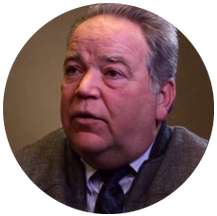When Pam started frequenting casinos, she saw the excitement of gambling as an emotional buoy to stay afloat while grieving her mother’s death. Sadly though, thrills soon turned to tragedy, leading her to lie, drain family bank accounts and eventually embezzle public funds at her workplace.
Wife, mother, grandmother and respected public servant, Pam lost her job and became a convicted felon.
When she sought help from Maryhaven, I asked her whether she took any regular medications. When she replied that she had been taking Mirapex, a light bulb snapped on. After hearing my suggestion, she followed up with her physician and stopped using the drug, typically prescribed for Restless Leg Syndrome and Parkinson’s.
Within four days, she lost all interest in gambling.
Pam’s story isn’t unique. Researchers began publishing findings more than a decade ago that demonstrated how certain “dopamine agonists” appeared to trigger obsessive-compulsive behaviors in some patients.
In lay terms, these drugs act on dopamine receptors in the brain. Dopamine is the brain chemical cocktail that naturally stimulates a sense of pleasure and happiness. It plays an integral but not completely understood role in neuroscience because we know that the pursuit of a dopamine rush drives all addictions — whether drugs, alcohol or gambling — but we don’t necessarily understand how and why.
Dopamine agonists have now been proven to trigger pathological gambling, hyper-sexuality and other obsessive-compulsive behaviors involving shopping and food in about 17% of people, according to a 2010 study published in the Archives of Neurology.
A French man taking Requip, a drug similar to Mirapex, sued the drug manufacturer after he said he lost all his family’s income and savings and resorted to theft to feed his online gambling habit.
A Pennsylvania Parkinson’s patient fell into pathological gambling and alcohol abuse, was arrested for driving under the influence, lost his license and entered a 60-day in-patient treatment program before realizing the cause.
An Australian woman who joined a class action lawsuit against a Parkinson’s drug named Cabaser, said she lost $700,000 on poker machines, separated from her husband and even sold her car to keep gambling.
A similar class action lawsuit over the drug Permax was settled in 2013.
And, while classified as a dopamine partial-agonist, the drug sold as Abilify also has now been connected to obsessive-compulsive behaviors. Ironically, Abilify is one of the most frequently prescribed mental health medications designed to treat depression, schizophrenia and bipolar disorder. A series of at least three recent research initiatives have proven the drug’s potentially obsessive side effect, with one finding a patient who said gambling had become “a reason to live.”
I need to say unequivocally that all of these medications are considered safe and effective for most patients. They can be lifelines to individuals suffering from the uncontrollable tremors of Parkinson’s or Restless Leg Syndrome or, as in the case of Abilify, those who face severe mental health issues.
But if you or a loved one suddenly develop a seemingly uncontrollable urge to gamble, seek treatment — and check your medicine cabinet. Call 614-324-5425 or contact us confidentially online today.

